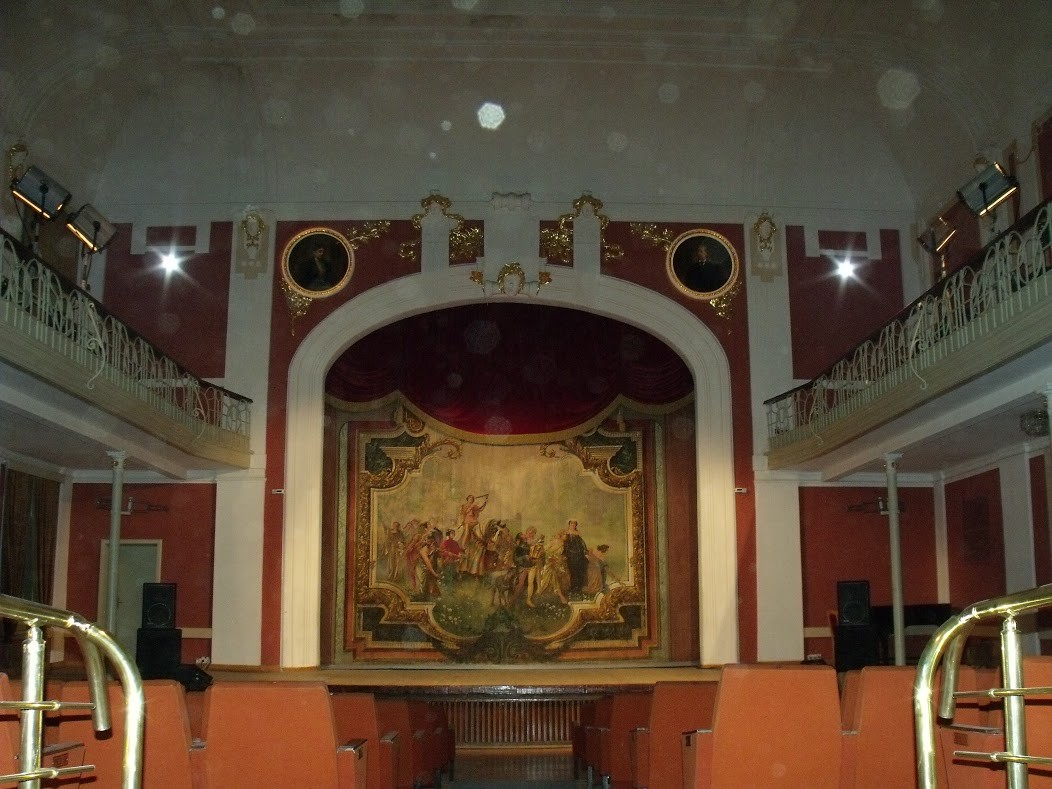A quick reference in the dictionary of the meaning of the word "chitalishte” center" shows that this is a cultural institution for the dissemination of knowledge and culture, especially active during the Bulgarian National Revival period. The so-called “chitalishte” (based on the word “cheta” meaning “to reach) is a unique form of socio-cultural organization, which first appeared in early 1856 in the Bulgarian town of Svishtov on the banks of the Danube. They usually consist of a library and various forms of activities such schools of music, dance, foreign languages, theatre, literary readings. They often initiate the celebration of socially significant events and holidays.
Currently, there are 3,709 chitalishte community centres registered in Bulgaria, according to the website chitalishta.com. What tangible and intangible historical treasures do these places preserve? Is the chitalishte activity still alive today and is there a need for it in the age of digitalization? The initiative of the Aleria Foundation "Marathon around the Bulgarian Chitalishte community centres" is looking for answers to these and other questions.

"Throughout the history of local chitalishte workers, we want to show the beauty of different parts of Bulgaria and the opportunities to visit them, even during a pandemic," Emilia Pavlova from the foundation told BNR-Vidin.
"We are a young foundation. In the beginning we were mainly looking for and filming authentic national costumes and so we were lucky to come across several community centres in our region, Varna. And during the meetings people there revealed themselves more and more to us and told about their work and life in the chitalishte community centres. We saw for ourselves how much energy and desire they put into their work every day and how difficult it is for them sometimes from a financial point of view, and at the same time these people, the community centre people, are the heart of the village - they know everything connected with the history of the place, with its customs and traditions, they keep national costumes and household items. Thus the idea spontaneously arose in us to show Bulgaria through the stories of the chitalishte activists, to tell about them as a collective image of the history of a certain place."
The marathon of course starts from the birthplace of the Bulgarian community centres - Svishtov. Next come other cultural institutions which expresses a desire to participate in the initiatives, as the visits there have been filmed in the short films uploaded on the Facebook page of the foundation:
"Our idea is to show through the chitalishte community centres various interesting places where we have never been. At the same time, to show that even in a pandemic there are places to travel to. Bulgaria is very beautiful and behind every turn something interesting awaits us, which is worth seeing."

The last three community centres through which the Marathon passes are in the Vidin villages of Bukovets, Sinagovtsi and Pokrayna. You can see the video stories from there on the foundation's Facebook page.
"From the places we have visited so far, we can say that what we call “narodno chitalishte” (meaning a community culture centre for the people) especially in smaller towns and villages is the only public place available. It's not just a library to borrow a book from. There, the entire cultural and public life of the local people to this day is concentrated there. This is a place for amateur activities, for cultural events, for folklore performances, even for social assistance in some places or just for meetings between people. The people who work in these places are amazing. In our opinion, they are the modern revival figures and they are the heroes of our time. The chitalishte workers really deserve loud applause," Emilia Pavlova says, summing up her impressions.
Edited by Vessela Krasteva /based on an interview of Stefka Pavlova, BNR- Vidin/
English version Rositsa Petkova
Photos: archiveThe exhibition "The Transylvanian Medieval Fortress" by the Romanian artist Ovidiu Carpusor will be presented from November 9 to 23 in the "Quiet Nest" gallery of the Palace Architectural Park Complex in the town of Balchik , on Bulgaria's Northern Black..
The national painting triennial with the theme "Bridges" will bring together 84 contemporary artists who will show 106 works in the Hristo Tsokev Art Gallery in Gabrovo. This year's theme of the exhibition - "Bridges" - includes two aspects,..
The OKO International Ethnographic Film Festival will be held in Sofia in the period November 8 to November 15th. The forum is realized with the support of the National Film Center, Sofia Municipality, the Embassy of Ukraine and the..
“A story that is worthy of a movie” is what we often say when we hear about some incredible event or an interesting story. It is cinema..
The fourth national Biennial of Illustrations opens today in the triangular tower of Serdica, part of the Regional Museum of History in Sofia. As..

+359 2 9336 661
